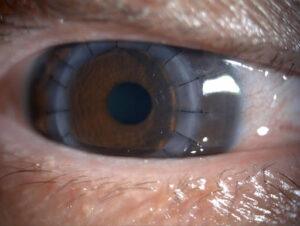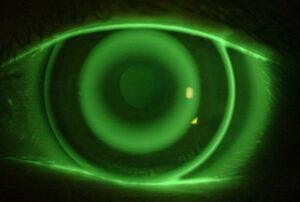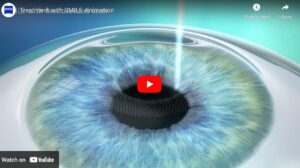Blogs

What is Corneal Transplant
A corneal transplant, also known as keratoplasty, is a surgical procedure in which a damaged or diseased cornea is replaced with a healthy cornea from a donor. The cornea is a transparent tissue located at the most front of the

Understanding Central Serous Chorioretinopathy: An In-Depth Look
Central Serous Chorioretinopathy (CSCR) is a retinal disorder where fluid accumulates beneath the macula, the area of the retina which is responsible for central vision. The fluid leakage comes from a layer of tissue under the retina, called the choroid.

Glasses-Free Options for Presbyopia: Presbyopic IPCL Vs Multifocal IOL
Presbyopia is an age-related condition that makes it difficult to focus on close objects. Glasses-free options for this condition are available and becoming increasingly popular: Multifocal Intraocular Lenses (IOLs) and Presbyopic Implantable Phakic Collamer Lenses (PIPCLs). Both options aim to

How Ortho-K Controls Myopia Progression?
Orthokeratology, commonly known as Ortho-K, is a specially designed rigid gas permeable contact lens that is worn overnight. The lenses gently reshape the cornea, temporarily eliminate your refractive error so that there is no need for glasses or contact lenses

Understanding Contact Lenses and Dry Eye
If you wear contact lenses, or are thinking about trying contact lenses, you might have heard about dry eye as a potential concern. But what’s the connection between contact lenses and dry eye? Let’s break it down in simple terms

Paediatric Assessment: All about Myopia Control
Do your children’s prescriptions (“eye power”) keep increasing, or do they need to change their glasses often? These could be signs of progressive myopia (short-sightedness), a condition that often worsens during childhood and can lead to serious complications like retinal

Excessive Blinking in Children
Why do we blink? Blinking is a normal response that protects the eye from foreign body entering. It also helps to regulate tears which clean the surface of the eye. Eye blinking may also increase as a reaction to pain,

Dry Eye Disease: Assessment & Treatment
Dry eye is a disease of the tear film that involves the ocular surface. To understand dry eye disease, it’s crucial to explore throughout the tear film. The tear film consists of three layers: Lipid layer: as a barrier to

In between SMILE pro, FemtoLASIK, TransPRK – Which one is for you?
Choosing the right laser eye surgery can feel overwhelming, especially with options like SMILE pro, TransPRK, and FemtoLASIK. Each procedure is designed to correct vision and reduce or eliminate the need for glasses and contacts, but the best choice depends
